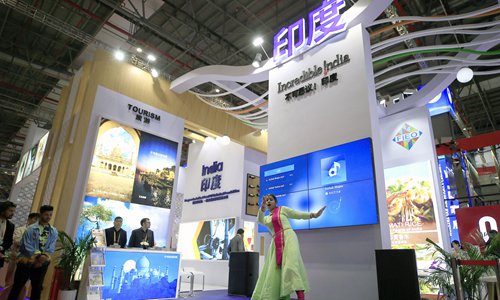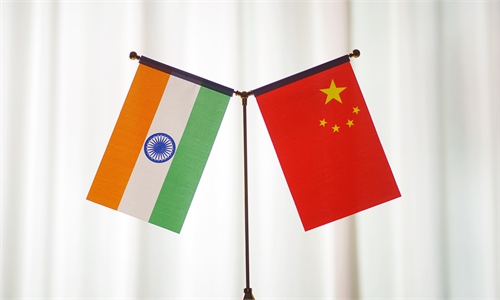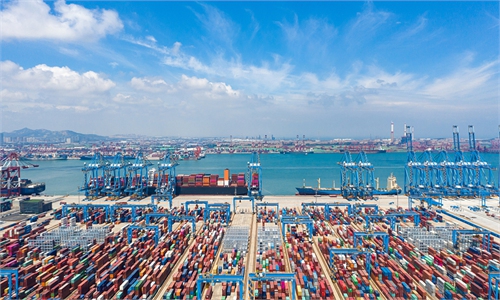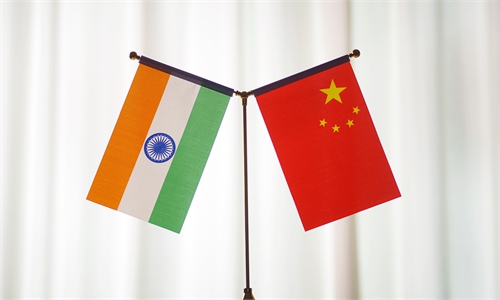
A view of India's national pavilion during the second China International Import Expo File Photo: Yang Hui/GT
India's trade with China hit a record high deficit of $77 billion in fiscal year 2021-22 ending in March, Indian media reported, worrying that there is still a long road to "Atmanirbhar Bharat," the self-reliance campaign being promoted by the Modi administration.
Latest official data from China and India up to March and February respectively, showed that India's trade deficit with China has widened to a new high record, local media outlet The Print reported on Monday.
As China-India bilateral trade surpassed the milestone of $100 billion in the calendar year of 2021, data from the General Administration of Customs of China showed earlier in January, a widening gap in trade between both countries is not surprising. However, this does not show the whole picture of the China-India bilateral trade which is mutually beneficial and essential.
The widened trade gap has solid reasons, including China's early recovery of production from the COVID-19 pandemic which boosted the country's exports with a growth of 21.2 percent in 2021, and the absolute advantages of Chinese producers which have left Indian importers few alternatives although New Delhi adopted a "disengaging" approach toward China in economic sectors in recent years.
Some Indian politicians have been complaining about the "trade deficit" with China for years and are seeking to reduce the dependence on Chinese products by disrupting normal trade or even calling for boycotts against Chinese products.
However, to find a trade balance with China is not the right path, and more importantly, it does not in line with the interest of ordinary Indian consumers and the overall growth of its industries. The imbalance is objectively driven by the differences in economic and trade structures between China and India.
China is the largest manufacturing hub in the world with the soundest industrial conditions. From production capacity and scale to cost control, supply efficiency, and quality, Chinese producers have developed comprehensive advantages compared to others in many industries.
Indian importers cannot find suitable alternatives both at home and overseas any time soon. However, growing Chinese imports are not a problem for India. In fact, from the perspective of the impact of bilateral trade on India's production and consumption, the current pattern of China-India trade actually favors India's development.
For starters, by purchasing better quality Chinese products at more reasonable prices, India could save more of its foreign exchange reserves and improve its capital efficiency. Ordinary Indian consumers could also enjoy better products at lower prices.
Moreover, India's large imports of machinery and electronics, as well as other intermediate goods from China, have also greatly facilitated India's exports to third countries. All these beneficial factors have been ignored by certain Indian forces when they complain about the trade gap between the two countries.
As two large developing countries in the world, China and India both have large markets but are currently in different phases of industrialization. By taking advantage of the great complementarities between the two economies, both have great potential to promote cooperation in trade and other areas, which are naturally in line with India's own interest.
Instead of seeking decoupling, India should enhance cooperation with China. For instance, by better connecting with China's industrial chain directly or by integrating into the regional value chain, India could take better advantage of its strengths and achieve a faster growth. Then, it could develop more products demanded by Chinese consumers and boost its overall exports to China.
It is reasonable for India to seek to develop its domestic industries or a more balanced bilateral trade with others, but clearly disrupting normal trading activities will not work. It is time for certain anti-China forces in India to respect economic rules and stop politicizing economic activities. Only by enhancing cooperation with China could both sides benefit.
The author is an editor with the Global Times. bizopinion@globaltimes.com.cn



